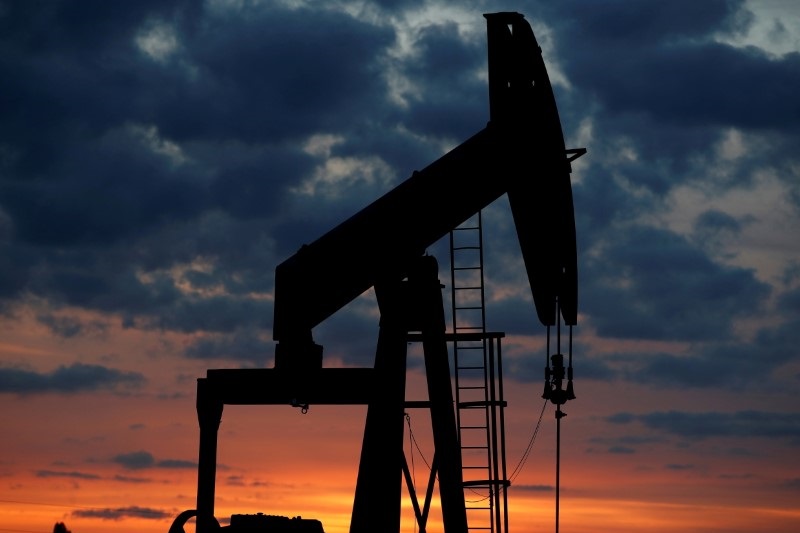This post was originally published on this site
https://i-invdn-com.investing.com/trkd-images/LYNXMPEI601OP_L.jpg
Following are details about companies with Russian exposure and their response to the Ukraine war and sanctions:
BASF
The German chemicals maker, which co-owns Wintershall Dea with Russian billionaire Mikhail Fridman’s LetterOne group, previously said it generated 1% of group sales from Russia.
Wintershall Dea, a long-term partner of Russia’s Gazprom (MCX:GAZP), said in April it had stopped new projects and payments to Russia but would retain assets there. The company was a financial backer of the suspended Nord Stream 2 gas pipeline from Russia to Germany.
BP (NYSE:BP)
The British energy firm said it would exit its 19.75% stake in Russia’s Rosneft, which is headed by Igor Sechin, an ally of President Vladimir Putin. Rosneft accounted for a third of BP’s oil and gas output in 2021. Sechin said on June 18 that BP remained Rosneft’s largest private shareholder.
CHEVRON
The U.S. company has a 15% stake in the Caspian Pipeline Consortium (CPC), a pipeline that runs from Kazakhstan to a Russian Black Sea terminal used for Chevron (NYSE:CVX) to export its crude. It also operates other subsidiaries that partner with Russian companies.
ENGIE
The French gas utility is one of five co-financiers of Nord Stream 2 and has a stake in the Nord Stream 1 pipeline along with Wintershall Dea, E.ON and Gasunie.
ENI (BIT:ENI)
The Italian company and Gazprom each have a 50% stake in the Blue Stream gas pipeline to Turkey.
EQUINOR
The Norwegian oil and gas company said on May 25 it had exited its four Russian oil and gas joint ventures, transferring assets to Rosneft. Equinor also signed an agreement to exit the Kharyaga oil project.
EXXONMOBIL
The U.S. company said in March it would exit about $4 billion in assets and discontinue all its Russia operations, including the Sakhalin-1 oil and gas project. It exited a number of joint ventures in Russia after sanctions were imposed on Russia following its annexation of Crimea in 2014.
An ExxonMobil (NYSE:XOM) affiliate has a 7.5% stake in the Caspian Pipeline Consortium.
FORTUM
The Finnish utility said in May it would exit Russia and was looking for a buyer for its assets. Fortum’s Russian unit operates seven power plants in Russia for district heating.
HALLIBURTON
The U.S. oilfield services company said in March it was winding down its operations in Russia.
NESTE The Finnish oil refiner said that, as of the start of April, it had replaced 85% of oil imported from Russia with other deliveries and said remaining purchase agreements for Russian oil would end in July. Russian oil had accounted for 77% of its crude and feedstock in 2021.
OMV
The Austrian oil and gas company made a writedown of a Nord Stream 2 investment and said in May it might have to make further writedowns on its Yuzhno-Russkoye gas field in Russia, in which it has a 24.99% stake.
SCHLUMBERGER
The U.S. oilfield services company has said it was ceasing new investment and technology deployment in Russia. In April, it said the carrying value of its net assets in Russia was about $800 million as of March 31.
SHELL
The British oil company, one of the biggest direct foreign investors in Russia, has written off the value of its Russian assets, which include a 27.5% stake in the Sakhalin-2 oil and gas project. It was also a backer of Nord Stream 2.
Shell was in talks with an Indian energy consortium to sell its stake in Sakhalin-2, sources said in May. It has also sold its Russian retail and lubricants business, which includes 411 retail stations and the Torzhok lubricants blending plant, to Russia’s Lukoil.
TOTALENERGIES
The French company holds a 19.4% stake in Russia’s Novatek LNG producer, a 20% stake in Yamal LNG and a 10% holding in Arctic LNG 2, which is scheduled to start up in 2023. It also has 49% in the Terneftegas and acquired 10% in LNG transhipment hubs in Murmansk and Kamchatka.
TotalEnergies has said it could exit Russia if it had to because of sanctions, which have already caused it to book a $4.1 billion impairment, but it has stopped short of joining others in announcing divestments.
UNIPER
The German utility, one of Gazprom’s biggest European customers, said on June 29 it had received only 40% of contractually agreed gas volumes since June 16 and had entered bailout talks with Germany’s government.
Uniper, in which Finland’s Fortum has a controlling 78% stake, has $1 billion exposure to Nord Stream 2 and five power plants in Russia, with together supply about 5% of Russian needs.

